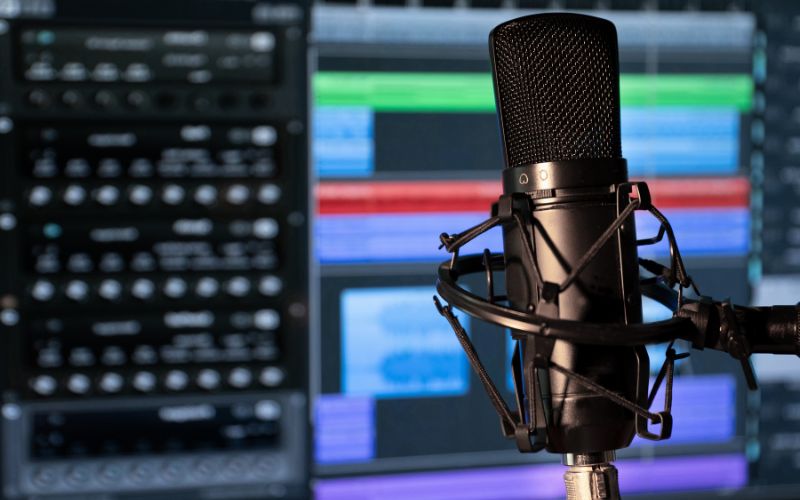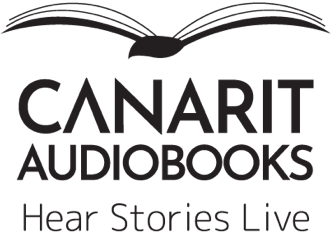
In the world of storytelling, audiobooks have gained immense popularity as a convenient and immersive way to enjoy literature. As audiobooks continue to evolve, new elements are being introduced to enhance the listening experience. One such element is the audiobook soundtrack, which adds a whole new dimension to the narrative. In this article, we will explore the concept of an audiobook soundtrack, its importance, the process of creating one, and how it enhances the overall listening experience.
What is an Audiobook Soundtrack?
An audiobook soundtrack refers to the carefully curated selection of background music and sound effects that accompany the narration of the book. It serves as an additional layer of audio that complements the story, adding depth, emotion, and immersion for the listener. The purpose of an audiobook soundtrack is to create a more engaging and cinematic experience, bringing the story to life in a way that captivates the audience.
Importance of a Good Soundtrack
A well-crafted audiobook soundtrack can significantly enhance the overall quality of the listening experience. It sets the tone, establishes the mood, and helps create a more immersive atmosphere. A good soundtrack can evoke emotions, heighten suspense, or add excitement to pivotal moments in the story. By carefully selecting appropriate music and sound effects, audiobook producers can elevate the impact of the narrative, making it more memorable and enjoyable for the audience.

Creating an Audiobook Soundtrack
When creating an audiobook soundtrack, several factors need to be considered to ensure its effectiveness in enhancing the listening experience.
Understanding the Book’s Genre and Tone
The first step in creating an audiobook soundtrack is to thoroughly understand the genre and tone of the book. Different genres require different types of music and sound effects to effectively convey the intended emotions and atmosphere. For example, a suspenseful thriller may benefit from eerie music and tense sound effects, while a romance novel may call for soft, romantic melodies. By aligning the soundtrack with the book’s genre and tone, the overall experience becomes more cohesive and engaging.
Selecting Appropriate Music and Sound Effects
Once the genre and tone are established, the next step is to carefully select the appropriate music and sound effects. Audiobook production companies often collaborate with composers and audio engineers to create original compositions or license existing tracks that align with the story. The music should enhance the narrative without overpowering the narration itself. Similarly, the sound effects should be strategically placed to create a sense of realism and immerse the listener in the story’s world.
Enhancing the Listening Experience
The inclusion of an audiobook soundtrack has the potential to greatly enhance the listening experience. By utilizing music and sound effects effectively, the audiobook becomes more immersive, captivating, and memorable.
Using Music to Set the Mood
Background music in an audiobook soundtrack can set the mood for different scenes and chapters. Soft, melodic tunes can create a calm and soothing atmosphere during introspective moments, while fast-paced and energetic music can intensify action sequences. The choice of music should be deliberate, aiming to evoke the intended emotions and engage the listener on a deeper level.
Incorporating Sound Effects to Create Immersion
Sound effects play a crucial role in creating a realistic and immersive experience. They can transport listeners to different locations, enhance the impact of dramatic moments, and add depth to the overall storytelling. For example, the sound of footsteps on a creaky floor, the rustling of leaves in a forest, or the distant sound of thunder can bring the story to life, making it feel more vivid and engaging.
Factors to Consider when Choosing a Soundtrack
While creating an audiobook soundtrack, certain factors need to be taken into consideration to ensure a seamless and legally compliant production.

Copyright and Licensing Considerations
When selecting music for an audiobook, it is essential to consider copyright and licensing restrictions. Audiobook production companies must obtain the necessary permissions to use copyrighted music or hire composers to create original compositions. By adhering to copyright laws, they ensure a legal and ethical production process.
Matching the Soundtrack to the Target Audience
An effective audiobook soundtrack should resonate with the target audience. It is crucial to consider the preferences and expectations of the listeners when selecting music and sound effects. For example, a young adult novel may benefit from contemporary music, while a historical fiction audiobook may require period-specific compositions. By matching the soundtrack to the target audience, the overall listening experience becomes more relatable and enjoyable.
The Role of Narration and Voice Actors
While the audiobook soundtrack adds an extra layer of audio, it is important to strike a balance with the narration and the voice actors.
Finding the Right Voice for the Audiobook
The narration of an audiobook remains a pivotal element. A talented narrator can bring the characters and the story to life, captivating the listener with their voice. When selecting a voice actor, it is essential to find someone who can effectively convey the emotions and nuances of the book. The voice should complement the soundtrack and work harmoniously to create a seamless listening experience.
Balancing Narration and Soundtrack
The audiobook soundtrack should enhance the narration rather than overshadow it. The music and sound effects should be carefully integrated, allowing the listener to fully immerse themselves in the story while still being able to follow the narration clearly. Achieving a proper balance between the narration and the soundtrack is crucial to maintain the integrity of the story and ensure an enjoyable listening experience.
Audiobook Soundtrack Production Process
The production of an audiobook soundtrack involves collaboration between audiobook production companies, composers, and audio engineers.
Collaborating with Composers and Audio Engineers
Audiobook production companies often work closely with composers and audio engineers to create the perfect soundtrack. Composers utilize their musical expertise to craft original compositions or select appropriate licensed tracks. Audio engineers ensure that the sound quality is optimal, managing the levels and overall balance of the soundtrack.
Mixing and Mastering the Soundtrack
Once the audiobook soundtrack is composed, it undergoes a meticulous mixing and mastering process. This involves fine-tuning the levels, EQ, and other audio elements to ensure a cohesive and polished listening experience. The goal is to achieve a seamless integration of the narration, soundtrack, and sound effects.
Conclusion
The inclusion of an audiobook soundtrack has revolutionized the way stories are told and experienced. By carefully selecting music and sound effects that complement the narrative, audiobook producers can create a more engaging and immersive listening experience for their audience. The audiobook soundtrack adds depth, emotion, and realism to the story, elevating it to cinematic levels. As the demand for audiobooks continues to grow, the role of the soundtrack in enhancing the listening experience becomes increasingly significant.
FAQs
No, audiobook soundtracks can be used across various genres. The type of music and sound effects chosen depend on the specific tone and atmosphere of the book.
It is important to obtain the necessary permissions and licenses when using copyrighted music in an audiobook soundtrack. Working with composers or utilizing royalty-free music is also a viable option.
A: Sound effects are not mandatory for all audiobooks. Their usage depends on the narrative and the desired level of immersion. Sound effects can add depth and realism to the listening experience but should be used strategically.
It is important to obtain the necessary permissions and licenses when using copyrighted music in an audiobook soundtrack. Working with composers or utilizing royalty-free music is also a viable option.
While many audiobook production companies offer audiobook soundtrack services, there are also specialized companies that solely focus on creating immersive and cinematic audiobooks with carefully crafted soundtracks.
